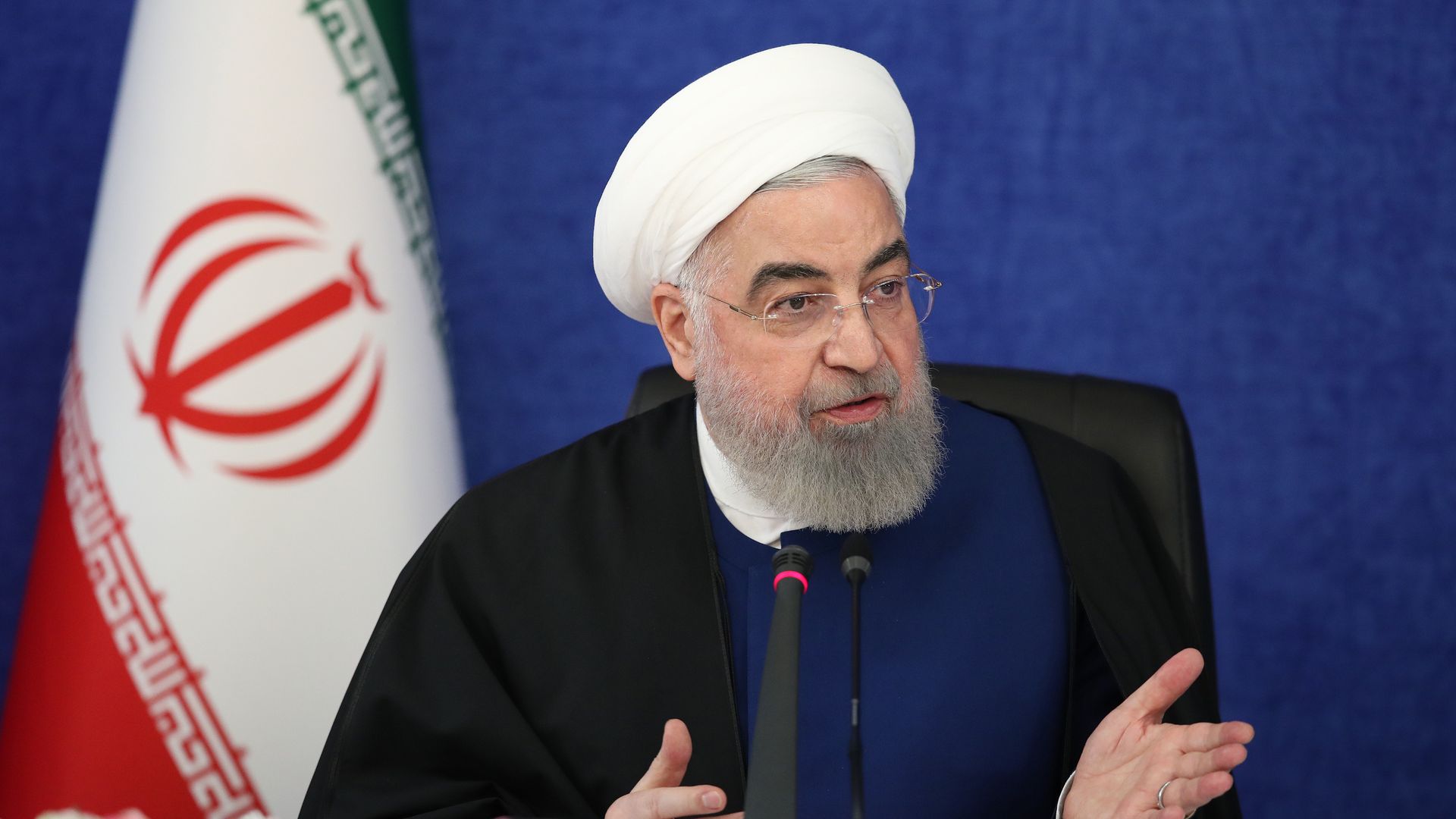Apr 28, 2021 - World
Despite optimistic statements, Iran nuclear talks proving difficult
Add Axios as your preferred source to
see more of our stories on Google.

Hassan Rouhani. Photo: Presidency of Iran/Anadolu Agency via Getty
Add Axios as your preferred source to
see more of our stories on Google.

Hassan Rouhani. Photo: Presidency of Iran/Anadolu Agency via Getty